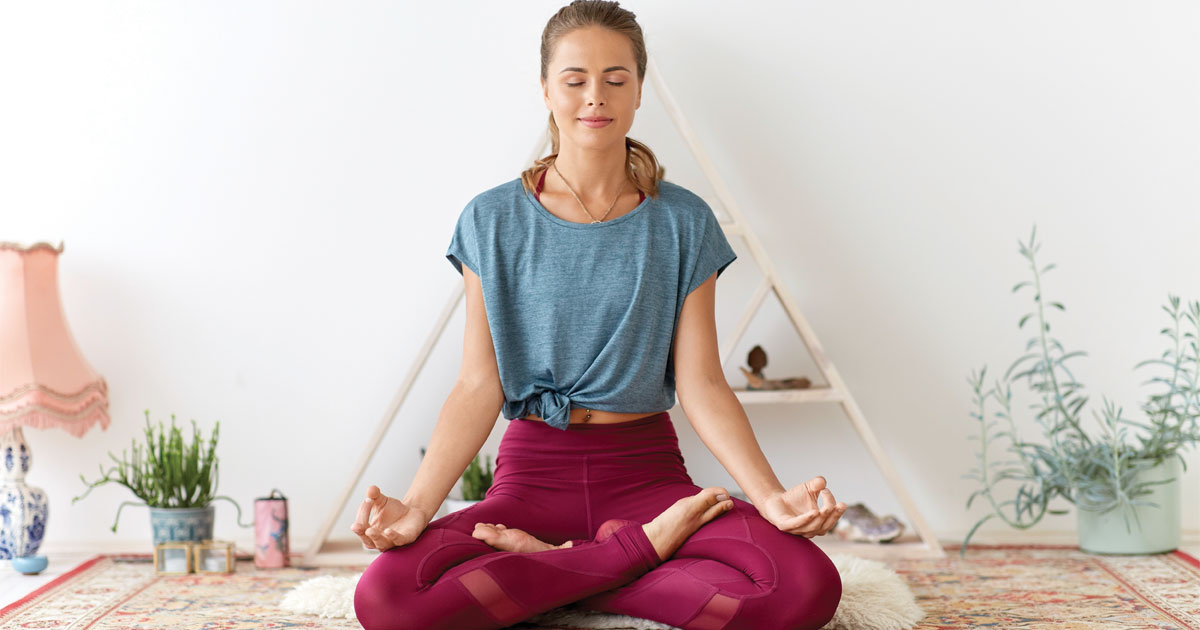BY JAMIE LOBER
Meditation mindfulness is a recent craze across our community. While it may seem like a new phenomenon, it actually has a very distant past. Buddhist monks used mindfulness exercises as forms of meditation over 2,600 years ago and viewed it as a path to enlightenment. According to the American Psychological Association, mindfulness refers to a psychological state of moment to moment awareness of one’s experience without judgment. In the last decade, this desired state has been practiced by all ages around the world who want to enhance their wellbeing.
There are a lot of misconceptions about meditation mindfulness. Those who have not yet given it a try may think it involves going into a trance or taking a nap. When getting started it is normal to fall asleep, feel slightly uncomfortable or become bored, as it is a new practice. Meditation mindfulness is essentially physical fitness but for the brain.
Some people enjoy taking up the practice by themselves while others find comfort and support in a group setting. There are even classes offered at prestigious institutions like Harvard because studies show meditation mindfulness to be so powerful and advantageous. The Harvard Gazetteexplained that you sit upright, eyes closed, palms resting in your lap, feet flat on the floor as you focus on the present by concentrating on bodily sensations, thoughts, emotions, and breath. Some tips to make things simple include:
- Choosing a quiet space, whether inside or outside of your home
- Picking out a comfortable pillow or cushion
- Surrounding yourself with things you find calming like candles or flowers if desired
- Putting your hands on top of your leg with your arms next to you
- Closing your eyes
- Breathing deeply
- Relaxing
- Focusing without distractions
- Taking however much time you need as many times a day as needed
You can start with a short session and gradually increase the amount of time you spend doing mindfulness meditation. Some people like to set a timer for just five or ten minutes.
Psychology Todaylisted the following 20 benefits of meditation:
- Increases immune function
- Decreases pain
- Decreases inflammation
- Increases positive emotion
- Decreases depression
- Decreases anxiety
- Decreases stress
- Increases social connection and emotional intelligence
- Makes you more compassionate
- Makes you less lonely
- Improves ability to regulate emotions
- Improves ability to introspect
- Increases grey matter
- Increases volume in areas related to emotion regulation, positive emotion, and self-control
- Increases cortical thickness in areas related to paying attention
- Increases focus and attention
- Improves ability to multitask
- Improves memory
- Improves ability to be creative and think outside of the box
- Makes you wiser
Considering that studies have reported eight out of ten Americans have too much stress in their life, meditation mindfulness can be extremely useful and even ward off physical illness and ailments. It can be applied in a whole host of settings, ranging from athletic teams to prisons to military to your personal space at home. The best part about meditation mindfulness is that you can learn to incorporate it anywhere. Some people do it as they take a walk, while others do it in their workplace. Whether you are a seasoned meditation mindfulness aficionado or just getting started, you will reap the great benefits if you are patient and dedicate a little time and energy into the practice.


















